BGS completes first mapping expedition to Ascension Island
BGS marine geoscientists travelled to Ascension Island to support its government with an ongoing, conservation-driven mapping programme.
11/12/2023 By BGS Press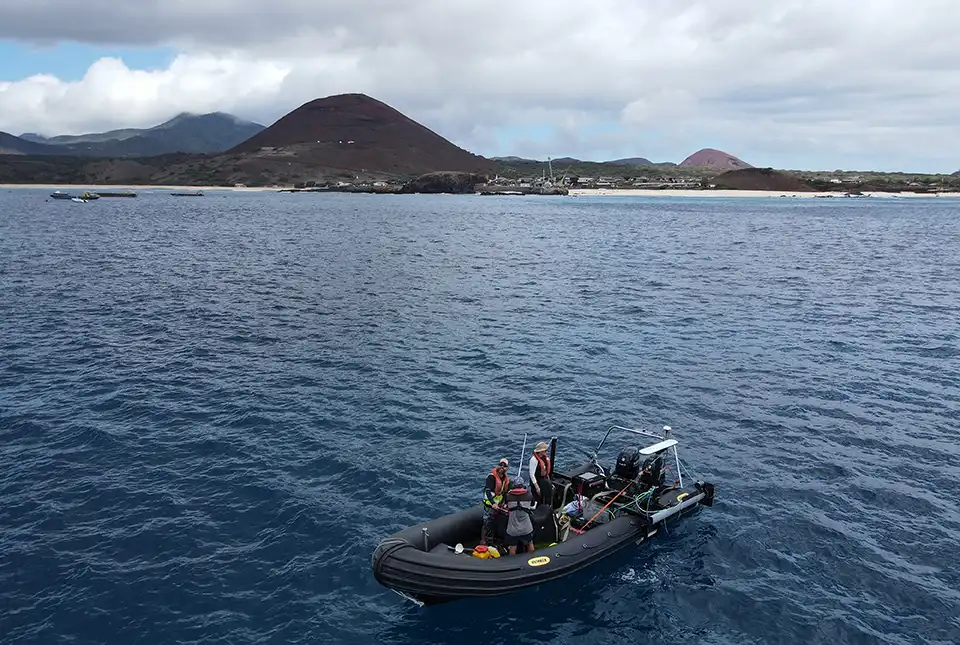
On 30 October 2023, BGS project manager and senior surveyor Rhys Cooper and marine geoscientist Catriona Macdonald took the 4000-mile journey to Ascension Island, an isolated volcanic island in the Atlantic Ocean, to undertake the first stage of a UK Government-funded project.
In 2019, BGS was awarded funding from the UK Government through Darwin Initiative, a grant scheme by the Department for Environment, Food and Rural Affairs (Defra) that funds projects aiming to protect unique biodiversity and improve resilience to climate change within the UK Overseas Territories. Following a four-year delay due to COVID-19, the project is now underway. The first expedition focused on mapping the shallow waters surrounding Ascension Island, including an area of the island that has never been mapped or surveyed before.
Working with the Ascension Island Government, this BGS-led project will determine the character, distribution and extent of the nearshore habitats of the Ascension Island Marine Protected Area (AI-MPA) through an integrated programme of surveys. The AI-MPA is rich in biodiversity; however, protected areas such as this are most at risk from anthropogenic development and climate change.
We've had a fantastic couple of weeks working with Rhys and Catriona from the @BritGeoSurvey !
The duo spent 10 days mapping #Asi's shallow waters on board the Moray with our team – no easy feat given Ascension's choppy waters!#smallislandBIGVISION
🎶:https://t.co/EUchP4ZcyO pic.twitter.com/aolJyuMgO3— Ascension Island MPA (@AscensionMPA) November 16, 2023
Resulting sea-floor habitat maps will provide the Ascension Island Government with urgently needed tools to better monitor and protect marine ecosystems, as well as underpin the evidence-based management of the AI-MPA. The data will be merged with an existing dataset collected by the Royal Navy UK Hydrographic Office (UKHO) in 2021, which has already enabled the deployment of an array of sensors to monitor the movement of sharks. The combined datasets will also allow the first detailed geomorphology, substrate and habitat maps to be produced for the island, down to a maximum depth of 1000 m.
Ascension Island is a remote location and therefore presents many unique challenges that need to be overcome if we are to be successful. We have had numerous delays that proved fortuitous: the Royal Navy completed a survey around Ascension Island during COVID-19 lockdowns, which significantly reduced the amount of data we needed to collect, lowering costs and enabling us to refine and focus our survey campaigns.
The Ascension Island Government owns a boat that was made available to the project. This simplified logistics but required a totally different methodology for deploying the survey equipment. An appropriate solution was found and trialled in the UK before shipping the equipment to Ascension Island. This ‘warm-up’ survey allowed us to check it worked, was safe to operate and ensured we had all the equipment needed.
Rhys Cooper, project manager and senior surveyor.


Ascension Island expedition preparation in Port Edgar. BGS © UKRI
The team is set to return to Ascension Island in January 2024 to complete the next stage of the project, which will focus on seabed sampling. A high-definition drop camera with laser scaling will be deployed to enable accurate mapping of the sea floor. The project is expected to be completed in April 2024.
This project is funded by the UK Government through Darwin Plus.

Relative topics
Related news
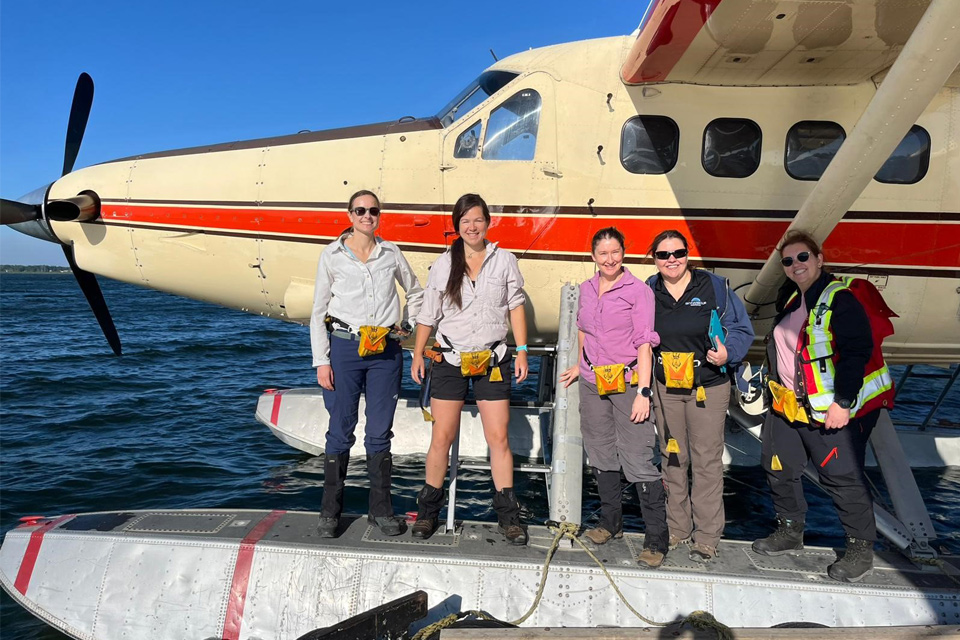
Funding awarded to UK/Canadian critical mineral research projects
08/07/2025
BGS is part of a groundbreaking science partnership aiming to improve critical minerals mining and supply chains.

AI and Earth observation: BGS visits the European Space Agency
02/07/2025
The newest artificial intelligence for earth science: how ESA and NASA are using AI to understand our planet.
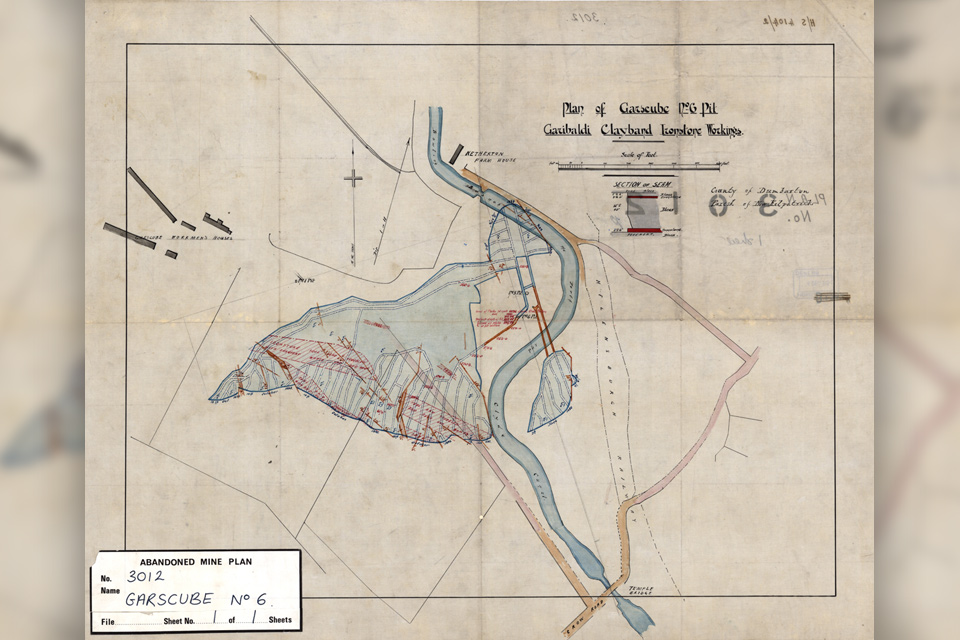
Release of over 500 Scottish abandoned-mine plans
24/06/2025
The historical plans cover non-coal mines that were abandoned pre-1980 and are available through BGS’s plans viewer.
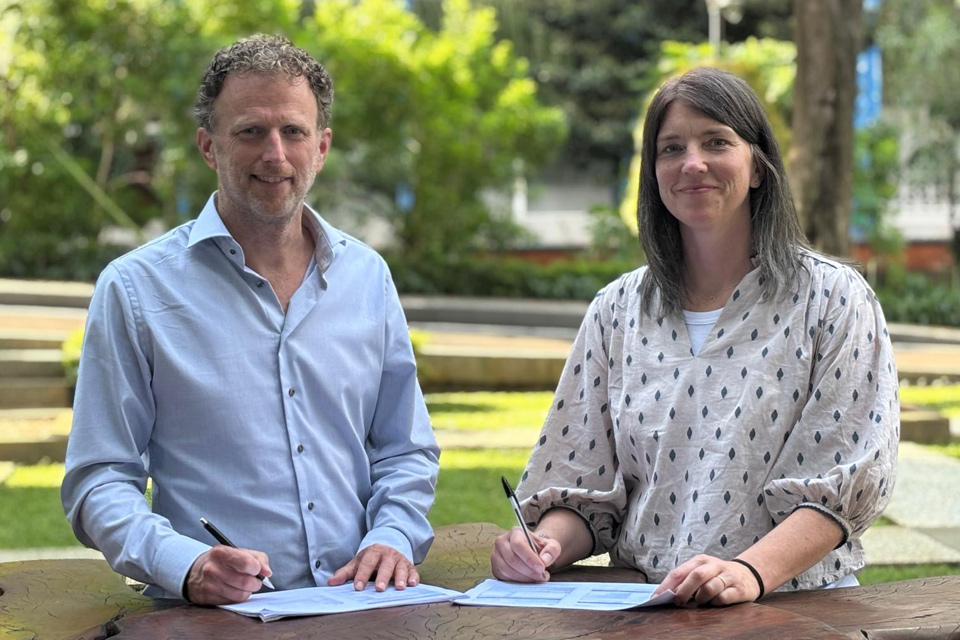
New collaboration aims to improve availability of real-time hazard impact data
19/06/2025
BGS has signed a memorandum of understanding with FloodTags to collaborate on the use of large language models to improve real-time monitoring of geological hazards and their impacts.

Modern pesticides found in UK rivers could pose risk to aquatic life
17/06/2025
New research shows that modern pesticides used in agriculture and veterinary medicines have been found for the first time in English rivers.

Goldilocks zones: ‘geological super regions’ set to drive annual £40 billion investment in jobs and economic growth
10/06/2025
Eight UK regions identified as ‘just right’ in terms of geological conditions to drive the country’s net zero energy ambitions.
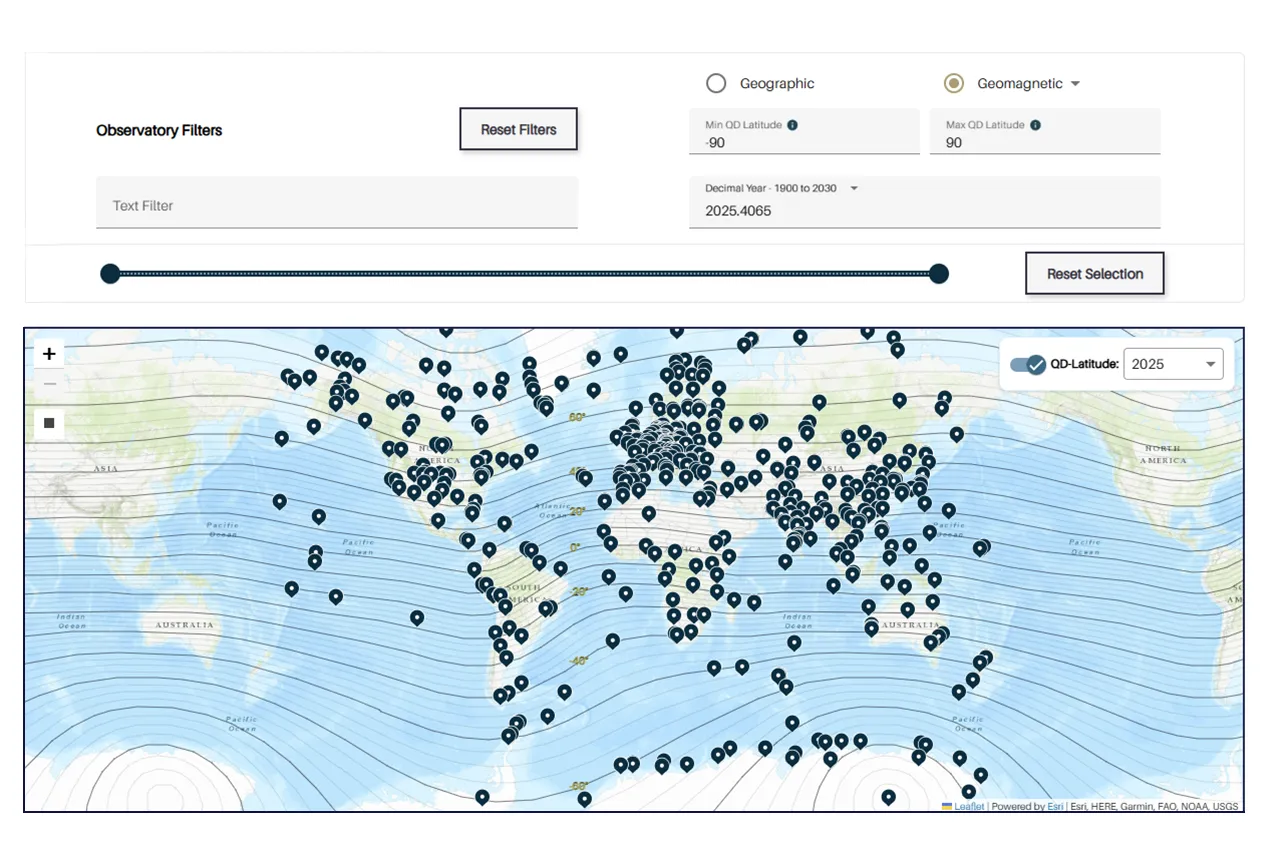
Upgraded web portal improves access to geomagnetism data
02/06/2025
BGS’s geomagnetism portal, which holds data for over 570 observatories across the world, has received a significant update.

BGS digital geology maps: we want your feedback
29/05/2025
BGS is asking for user feedback on its digital geological map datasets to improve data content and delivery.

What is the impact of drought on temperate soils?
22/05/2025
A new BGS review pulls together key information on the impact of drought on temperate soils and the further research needed to fully understand it.

UK Minerals Yearbook 2024 released
21/05/2025
The annual publication provides essential information about the production, consumption and trade of UK minerals up to 2024.

BGS scientists join international expedition off the coast of New England
20/05/2025
Latest IODP research project investigates freshened water under the ocean floor.

New interactive map viewer reveals growing capacity and rare earth element content of UK wind farms
16/05/2025
BGS’s new tool highlights the development of wind energy installations over time, along with their magnet and rare earth content.



